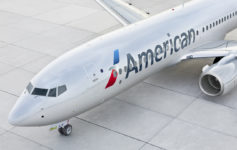
Here’s my rebuttal to a recent post by Your Mileage May Vary arguing that calculating cents per point (CPP) or cents per mile (CPM) is an “awful” way to value award points.
Yes, Looking At Cents Per Point (CPP) Is A Smart Way To Value Award Points…
At the outset, let me concede that how you value your miles and points is inherently subjective. I tend to give them more value than others, placing the value of most airline and flexible point currencies at two cents each.
As YMMV notes, think of CPM or CPP like this:
CPP = (Cash Price in Cents) ÷ (Points Required)
Example: $100 cash rate (10,000 points) → 100 ÷ 10,000 = 1 CPP
In short, you take the cost of a travel reservation and divide that by the number of miles or points required to make the same reservation.
YMMV reasons, “The issue I have with this valuation method is that it doesn’t take into account if the cash price of your award is artificially inflated.”
I think “artificially inflated” is the wrong term, but the point is that sometimes we can say stupid things like, “Oh, I got 10 cents per value on my Lufthansa First Class redemption,” when there is no way we’d ever even consider paying the cash price.
That’s a fair criticism…
I also think that just because we might only actually be willing to pay $1,000 out-of-pocket for a Lufthansa First Class ticket (versus the $10,000 sticker price) does not mean that we are only getting one cent per point in value if we redeem 100,000 Aeroplan miles for the first class flight.
Because every transaction represents an opportunity cost, and if you earned those Aeroplan points at two cents per mile instead of using, say, a US Bank 4% cashback credit card, your actual “cost” for that ticket is $2,000.
And I think of it like this…one beauty of points is that you can enjoy the finer things in life without the liquidity others need to do the same thing. You do set aside cashback opportunities when you collect points, but if you view it all as a bonus, you’re still not paying much out-of-pocket for the flight or hotel, which itself is a fun part of the game.
I don’t redeem my points for Lufthansa First Class because it is the “greatest value” but because I really enjoy Lufthansa First Class.
Even so, CPP is a vital barometer for measuring value: if the ticket cost $1,000 or 200K points, there is no way I’d use points, no matter how much enjoyment it brought me, because those points are worth more than a half cent each.
There is a baseline value on points, and I think you’re foolish if you don’t get at least that.
YMMV laments about a recent 160,000-point Hilton redemption in New York City, saying, “What disappointed me was overestimating the value of my redemption by thinking the hotel I stayed at was worth the cash price they were charging.”
That too strikes me as a different matter…the quality of the hotel experience is also subjective, but that does not really impact the wisdom of using points versus dollars for the stay when faced with that binary choice. Instead, it simply impacts whether you should stay at that property (or fly that airline in that class of service) at all.
Ultimately, YMMV concludes, “If you’re happy with how you used your points, then it was a good redemption,” and I would agree with that. But that’s a different proposal than saying calculating CPP is an “awful” way to value award points.
image: Lufthansa




I straddle the line here – i believe in using CPP to ensure I’m getting a good value, but I compare it against the best price for something similar or better.
If buying 2 one way awards on separate alliances as part of a round trip or open jaw, I don’t compare against the one way price of my exact flight itinerary because it’s likely to be prohibitively expensive as it’s one-way flights AND odds are there were better itineraries available with cash. I will compare against what a similar round trip would cost.
Same with hotels – if I spend 60,000 Hilton points for a $600 Hilton, I didn’t get 1 cpp if the essentially equal Marriott next door is $300.
I look at it that way when cashing them out, and use them almost exclusively for saver international business awards, where I figure them around roughly 5 cents per point on average. But I also have in my mind that I put a lot of business expenses on cards, mainly in ways to maximize points earning multiples, so am earning points faster than I can use them, and it feels very easy to use them for business class award travel with little out of pocket cash. Also, I greatly value the flexibility to cancel or change most award travel. Cash paid travel is different, and I’ve had to eat thousands of dollars when needing to change cash tickets.
5 cents is hard to find. That is basically only limited to F saver awards to places like Japan. USA to Europe business reasonable range is 2-5k. USA to Asia range is 3.5-6k. This is what these tickets cost 99% of the time. It’s only possible to easily get 5 cpp if you compare to full fare one-way tickets, which you would never buy unless you’re never coming home.
CPP is the only straight forward way of valuing points that makes sense to me and doesn’t involve making a lot of very speculative assumptions. If I redeem 100K points for two one-way business class tickets that would have cost $10k to purchase outright, in my view I have gotten $10k in value, or 10 CPP. Lacking the 100k points to spend on the tickets most likely means me and my wife would have stayed home and not made the trip at all. To then argue that because I was only willing to spend $0 for those tickets I received zero value for my points is absurd.
If you want to argue that I need to deduct the opportunity cost of the points (1.5% cash back) that is fine. Or if you want to quibble about the actual cost to buy the tickets (price on the day I redeemed the miles, an “average” cost for similar tickets, or the cheapest cost for those tickets during a sale) is ok too. CPP is the metric I use.
Points are only worth something if you redeem them. You find a redemption that is “good enough” or “pretty good,” valuewise and schedulewise, you redeem, you replenish. There may be “better” redemptions out there, but that is not for certain and it’s getting more and more difficult. Do I use CPP in doing this? Absolutely. I have my own valuations, however, and sometimes I redeem just to flush out and use up orphan points. Do I pursue an absolute maximialist (word choice?) CPP policy? Absolutely not, and I do not recommend that.
CPP is absolutely an important metric, it’s just not the only one.
““The issue I have with this valuation method is that it doesn’t take into account if the cash price of your award is artificially inflated.”
This is actually the biggest quibble I have with his broader Devil’s Advocate point. If you’re using points to cover a hotel, flights, whatever on specific dates that you want or need to travel, the cash price is the price, whether it’s inflated or not. If you don’t have flexibility to go some other time, it’s irrelevant what the theoretically lower cash cost is.
The mistake I see people make on the other side is the old, “I used 72,500 AAdvantage miles for a one-way J ticket that would cost $4,500 cash, so I got 6.2 cpp value.” Well, except if you didn’t have the miles, you wouldn’t have actually spent that kind of money, so the contemporaneous value is what you would have been willing to spend in cash for the seat. Then add in other factors like opportunity cost compared to cash back, the fact that points depreciate, etc.
More likely they inflate the value of the award intentionally to feel good about themselves. I buy J tickets to Europe in cash sometimes. they cost 2-5k round trip. If you plug in one way they will suddenly become 10k. But no one is actually paying 10k unless they are moving to Europe indefinitely. Likewise, it’s 4-6k for a round trip to asia. The only 10 CPP is first class to Japan where the tickets are 15k round trip.
10CPP is far from impossible to achieve if you’re flying business class within Africa. The cheapest DAR-SSG business return is over $3k, you can do it for less than 50k miles, and I am sure there’ll be city pairs where the redemption value is even higher.
It all depends on where you are looking and how many miles it costs. My last award flight was a connection at JFK then a direct to MAN. Would have been about $6k – high but not uncommon for some TATL routes. Got VS both ways for 37.5 k each way. IB also has some really cheap saver business awards.
Throw in that those miles were obtained on 2x, 3x and even 5x spend plus 200k points for a signup bonus recently, And then consider that reservations made with points are more flexible. That is a lot of value for points. I used to get a lot of value for using them for upgrades, too, but those have practically disappeared.
Points allow me to take business class international trips that I normally would not pay for directly.I’m not about high end hotels although I’ve stayed at some, but having the comfortable flight is a big plus.
If I get a credit card that gives me back 2% that isn’t as lucrative as being able to use 120,000 miles on a roundtrip business class ticket. Most of the time that ticket will cost more than $2,400. Also many of those 120,000 miles I had came from bonus categories where I might be getting 3 or 4 miles per dollar.
I do think some chase points/miles more for status/bragging than actual need.
I’m not a big traveler so if I can get enough points, say 300,000 or maybe a bit less every year or every other year for a trip to Europe I am satisfied.
Right now I’ve been using Amex points the most although I have a stock pile (large for me) of 500K points with chase. I also bought lifemiles for around $1,000 to get a business class rt.
My experience is 100% with AA, which makes it easy to earn points with all their partners. The shopping portal alone has huge opportunities if you do the research and have discipline. The hotel portal is great as well if you are a free agent and not tied to a brand. No show stays alone can get you trips at huge discounts, earning 30x+ on stays in points.
Now the debate with many here is they dislike AA, but when you fly cross country for the cost of a 1 time meal plan, there’s not much to dislike.
Within the context of the story, I always use CPP and it works fine for me, especially unlike most here, I am flexible on dates and time which only increases my CPP.
Douchebag Dave Edwards, nice to read something you wrote that isn’t stupid hateful racist possible trolling. Maybe there’s hope for you.
BTW; inflation WAY up, employment WAY down, your hero’s approval ratings down, the rest of the world is laughing at (not with) us, your hero with even more evidence of dementia; you still calling all that “winning”?
I think you’re dealing with a false dichotomy. My preferred approach is to work out the CPM valuation on the basis of what I am prepared to pay for a service.
If I want to fly one-way in business class from Central America to Argentina, I may be prepared to spend €750. If I happen to have miles with a frequent flyer programme then makes a business class award available for 21k miles for that journey, I will use miles and consider that I got 3.57 cents per mile-it doesn’t matter whether Avianca have an offer on at €600 or Aeromexico are charging €2,200. If I only have miles with UA which charges 90k for that journey, I will work out it’s a 0.83CPM value and probably decide to look for a cash fare up to €750…and if I can’t find that, I’ll try to get a Y ticket with a connection at LIM or something to ensure I don’t spend too many hours in those unpleasant conditions.
Douchebag Dave Edwards, almost forgot, war in Ukraine still raging despite your hero saying many times that he would end it in 24 hours. Most of the civilized world sees that as further evidence of your hero being Putin’s Useful Idiot (he’s obviously someone’s idiot), perhaps more “winning” in your eyes.